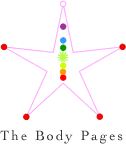The following is an excerpt from Michael
Tierra's book,
The Way of Chinese Herbs
We have discussed the value of brown rice as the most balanced food
because it supplies a well-balanced complex carbohydrate for sustained
balanced energy. Mung beans are unique in that they supply the necessary
amino acids, which, with the brown rice, help enrich the overall protein
value. Another important and unique aspect of mung beans is that because
they have a cool energy, they are detoxifying and help neutralize acids.
Mung beans are even recommended as one of the substances to treat toxicity
symptoms of aconite poisoning. Mung beans are therefore a proteinaceous,
highly nutritious blood purifier. By neutralizing toxins throughout
the body, they are able to calm the mind, relieve hypertension, clear
the accumulation of excess cholesterol and other lipids from the veins
and arteries of the body, and promote the healing of all diseases. Unlike
fruit or vegetable fasts, which are also cooling but lack the denser
nutrients, a diet high in mung beans, especially a kichari and mung
bean diet, achieves a more balanced detoxification without aggravating
any nutritional deficiences.
"This isn't food; this is medicine!" The combination of brown
rice and mung beans in kichari represents a perfect combination of life-sustaining
protein and carbohydrates. Secondly, the addition of whole rock salt
supplies added trace minerals the body needs to properly use other nutrients.
Third, but not least, the three essential spices, coriander, cumin,
and turmeric, the basis of curry mixtures, each have unique therapeutic
properties that aid digestion and prevent food and other stagnations
from occuring. Traditional nutrition beliefs of both China and India
seem to imply that it is the subtle combination of the five flavors,
which activates each of the internal organic processes, and this may
be more important even than the nutritional content of food. Let's look
at these. Coriander and cumin seeds have warm, spicy energy and benefit
the lungs and spleen for better assimilation and transformation of food
into energy. Turmeric, with its bitter and spicy flavours, is well known
in TCM for its liver-detoxifying and blood- and qi-circulating properties
that help to prevent stagnation and relieve pain.
Miso has special qualities too!
Miso is one of the most perfect foods. First, because of the fermented
soybeans, it is rich in easily assimilated high-quality protein. Second,
it is commonly taken before or during Japanese meals because it aids
the assimilation of other foods. Miso contains live enzymes and lactobacilli
which are only present in unpasteurized miso (the kind I recommended
is unpasteurized) and should never be boiled. Miso is low in fat and
has absolutely no cholesterol. The bacteria in naturally fermented miso
have been found to manufacture vitamin B12. Miso is used to relieve
acid indigestion, symptoms of hangover, and other digestive upsets.
Because of this, it is used with ginger and/or garlic to prevent and/or
cure colds, improve digestive metabolism, increase resistance to parasite
infestations, and neutralize blood toxins and therefore clear the skin.
Still another benefit of miso is in its ability to counteract the adverse
effects of radiotherapy, antibiotics, chemotherapy and environmental
pollution. By 1972, Dr. Akizuki, his nurses, and co-workers, whose hospital
was located only 1 mile from the atomic bomb blast in Hiroshima in 1945,
still had experienced no side effects from radiation exposure, despite
the opposite experience of others in the near vicinity. He attributed
this to the fact that they regularly ate miso. Stimulated by Dr. Akizuki’s
claims, Japanese scientists conducted a study of miso and one of the
ingredients used to make it, called natto. They found a substance they
called zybicolin, which is produced by the yeasts of these products.
It has the special ability to attract, absorb, and discharge such radioactive
elements as strontium. Miso is also able to detoxify the harmful influences
of tobacco and traffic pollution.
Taken from the book, "The Way of
Chinese Herbs"by Michael Tierra...a great book for learning about
chinese herbs, and foods listed alphabetically that help with various
conditions. Excellent~!



|


